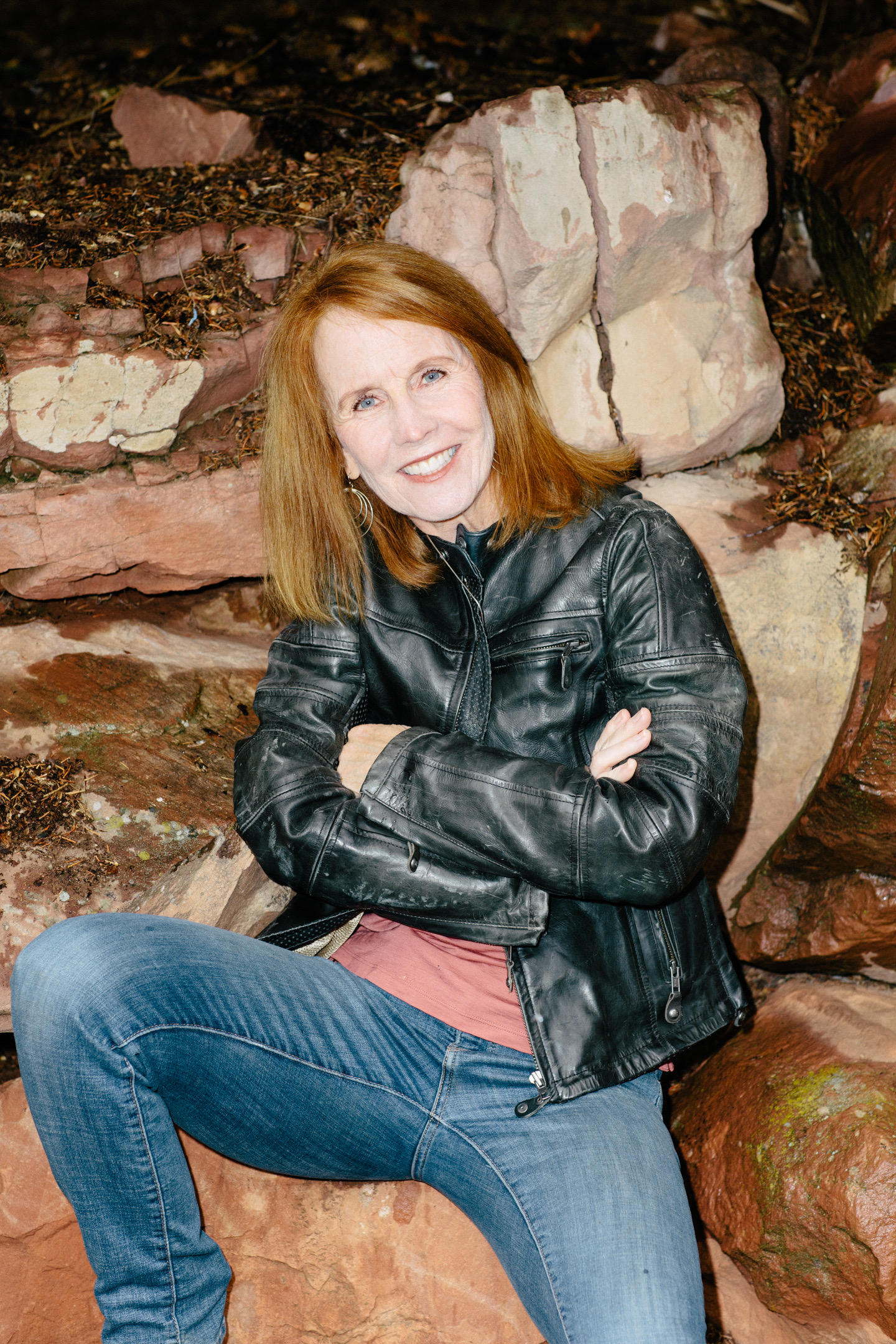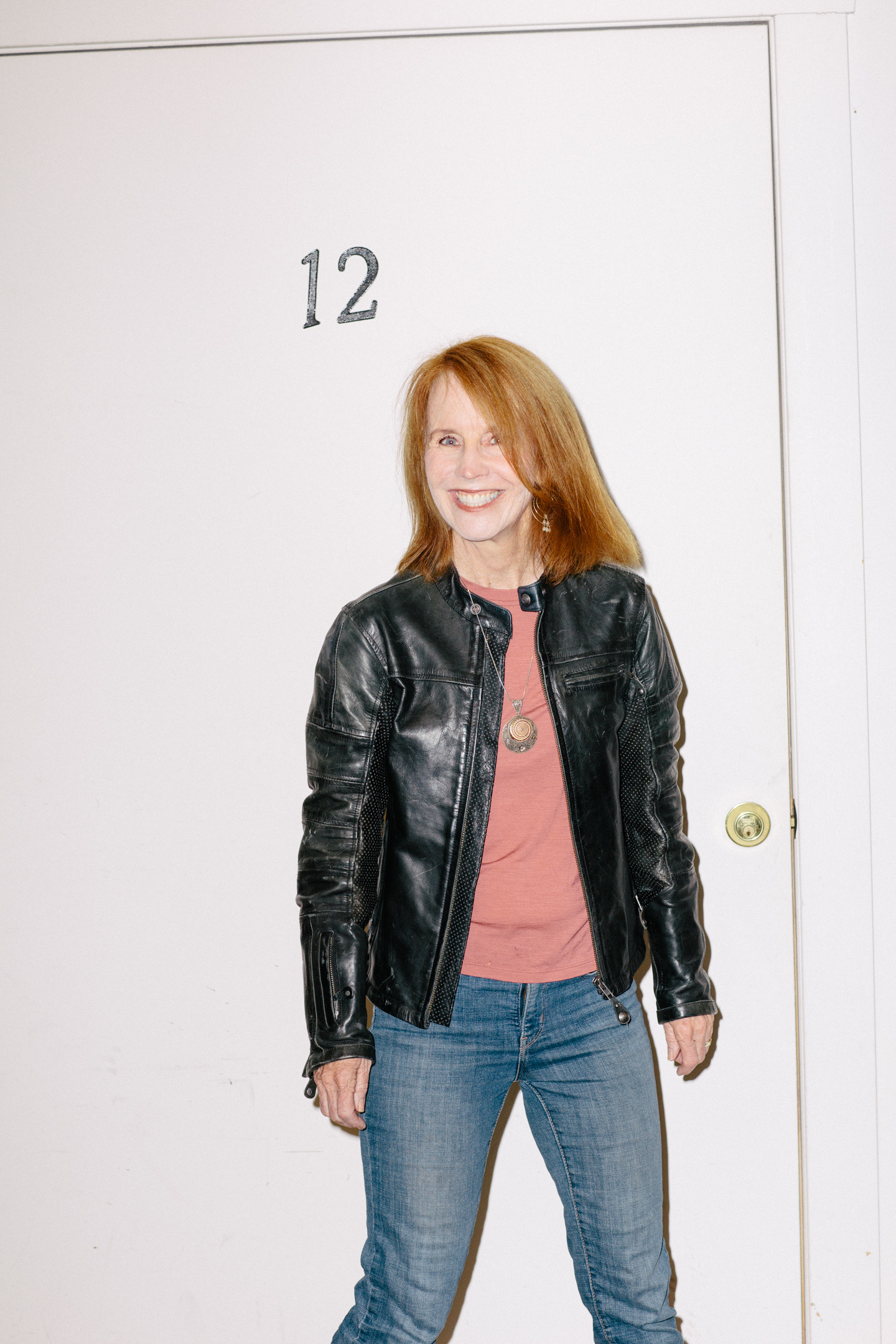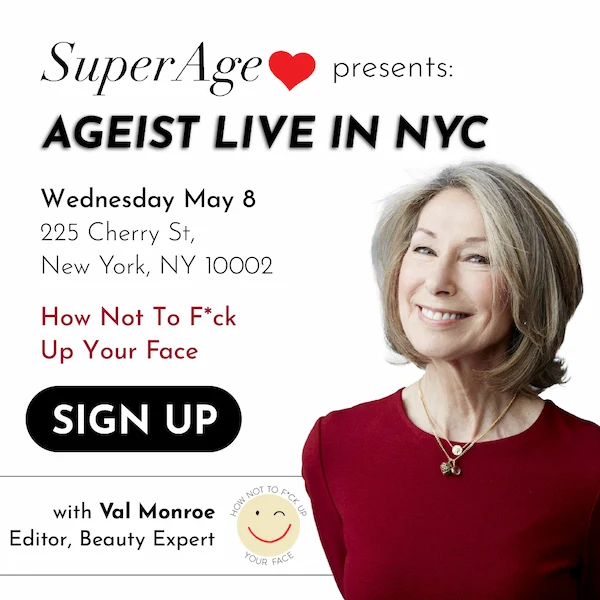Risk is oftentimes thought of as a negative; especially with age, we seem to think that all risk should be minimized. Depending on how one interprets this, just the idea of meeting new people can be seen as risky — which is not a good place to end up.
Bernadette’s entire life direction changed when she realized how much more capacity and strength she had; when, at the age of 48, she bought a Harley and began a life-changing adventure. While not endorsing the idea of everyone becoming middle-age bikers, the journey she took and how the purchase of the bike entirely changed how she saw herself allowed her to get back to the person she was meant to be. Sometimes we fake who we are because it is what we feel is expected of us, but then that shirt no longer fits, enough is enough, and we move into the skin of who we were meant to be.
She wrote a brilliant book about it: Harley and Me: Embracing Risk on the Road to a More Authentic Life. Reading it, I thought of how many of us have spent years shutting down who we are because it is what we thought we needed to do. Maybe not — age gives us the freedom to be the people we were meant to be.

What was the catalyst for your change in life direction?
My father was dying and I realized I’d worked my whole life to be a good girl, but not necessarily an authentic human. I didn’t want to die without really finding out who I was.
What is your age today, and how old were you when you got the bike?
I was 48 when I got the bike. I recently turned 60.
Did the passing of your father catalyze a new sense of time for you?
Absolutely. He had spent a large portion of his life denying part of his history — he’d been raised in an Industrial School in Ireland which is kind of like a Dickensian workhouse. Only in the last few years of his life was he able to even begin to own that experience. I was worried that I, too, might die without ever really owning my own life.
Leaving your husband, you became a single mom with a Harley?
Crazy, I know. Coworkers at the university where I taught couldn’t believe it. Like, “What happened to you?”
“I set out on a journey to try all kinds of things to see where else I might feel my spirit really coming alive”
How did the bike change the way you thought of yourself?
The bike helped me believe I might be strong enough to survive that period of change and dissolution in my life. That maybe there was a kickass woman living inside me and she might come out if I invited her. Plus, the way people looked at me really changed once I started riding. Just going to the ATM to withdraw cash on the bike one day, the looks I got from guys and comments, all of them positive, made me rethink who I was. I was used to being a mom who wore Winnie-the-Pooh denim jumpers when the kids were small, but then I became someone in motorcycle boots and leathers and felt the real me start to emerge. Plus, I was shocked that I loved riding as much as I did and thought, “If I have lived 48 years without knowing I loved riding, what else might I love that I don’t yet recognize?” I set out on a journey to try all kinds of things to see where else I might feel my spirit really coming alive.

How did having the bike change how people saw you in the world? What did you learn from riding?
Suddenly, people thought I was more capable and stronger than they had previously. And the fact that they saw me that way allowed me to see myself that way. From riding, I learned to figure stuff out. Like how to pick up the bike when I found myself on a mountain road with no cell phone service and no one around to help me. I learned that I’m stronger — emotionally, physically, spiritually — than I realized.
Was the riding a gateway? Something that showed you that you had more capacity? You went on to live in French Polynesia for three months, ran a marathon, took up scuba diving, rock climbing, ice climbing.
Absolutely. If I could ride a motorcycle across the country, what else could I do? Since then, I’ve learned to ski, backcountry ski, and to mountain bike. Each of these things scared the daylights out of me initially but, because of the experience on the bike, I knew that if I stuck with them and kept working hard, eventually I’d get better at whatever I was doing and not be so scared. Part of it was about simply learning to keep breathing and moving ahead when I’m terrified, recognizing that being scared won’t kill me. And to be fair, I didn’t get great at everything I did, but that’s important, too. I learned it’s okay to do something simply because I want to. I don’t have to be good at everything to allow myself to do it.
“If I could ride a motorcycle across the country, what else could I do?”
What does risk mean to you?
It means challenging myself. Asking myself: What would it look like if I wasn’t afraid to do this thing? Why not try it out and have an experience?
Risk seems to be increasingly pathologized. Can that lead to a whole other set of problems?
In our culture, risk is seen as a bad thing — those who gamble too much, abuse drugs, seem to have a death wish — and that is where our scientists seem to focus when studying risk: the downside. Thus, when I spoke with psychologists and neurologists about my questions re: risk, they pointed to study after study that only looked at the pathology of risk, rather than its benefits. In a way, this is a reflection of our medical system that focuses more on treating disease rather than preventing it. Suffice it to say that when risk is only considered a bad thing to be avoided, there isn’t much encouragement for those of us who have discovered that risk can have significant benefits to all parts of our lives.
What is your impression of how risk and novelty affect long-term brain health via neural plasticity?
When we do new things, risky or otherwise, we develop new neural pathways. When we do it a lot, we have new pathways being built all the time. This is good for brain health because, like everything in life, it’s a matter of “evolve or die.” If we’re not growing, we’re atrophying. And yet we get a choice in the matter. Do I want to keep saying “yes” to amazing new experiences, even those that scare me? If so, I get to continue strengthening my brain’s health. By not taking that route, we shrink up, dry up, our brains stop being as responsive as we’d like them to be.

People tend towards caution as they age. What are your thoughts on that? How is not embracing risk actually risky?
By not embracing risk, our lives get smaller and smaller and risk starts to feel even scarier. It’s important to keep challenging ourselves to do things that scare us, even if it’s simple things like taking a new route to work or trying a sport or hobby you’ve never done before. It helps us maintain plasticity in our brains.
“By not embracing risk, our lives get smaller and smaller and risk starts to feel even scarier”
What is the relationship between novelty and risk?
Some people, like me, crave novelty and will seek it out. A lot of novelty involves risk, even if it’s just the risk of entering into something that’s unfamiliar — not necessarily life-threatening risk. Other people don’t have that craving for novelty and, in fact, will go out of their way to avoid it, choosing the same thing for breakfast every day, wanting their daily life to be highly predictable. This is just how we’re wired. But for those who crave novelty and those who want to avoid it, it’s still important to challenge ourselves with the unfamiliar. Maybe someone who craves novelty will learn to skydive while the person who avoids novelty might join a book club — both are ways of getting us out of a rut and helping to keep our brain healthy, just different in scale.
Does a part of memory hold us back from embracing risk?
Sure! If you were hurt that last time you skied, you’re going to be hesitant to get back on the lift. But like getting back on the horse after being thrown, it shows us what we’re capable of and keeps us from limiting ourselves.
What are your thoughts on fertility, menopause and risk?
Women are biologically programmed to avoid risk during the child-bearing years. This has been shown with research and it makes sense since it’s nature’s way of making sure mothers are around to raise their offspring. The problem arises when we get used to that risk-averse stance and don’t come out of it. Leaving behind the child-bearing years is a great window of opportunity, allowing women to return to who they were pre-puberty, when they were likely more fierce and curious and engaged. But our culture hasn’t encouraged women to embrace that side of themselves. It’s important that we do it for ourselves and encourage those around us to also emerge from that cocoon of nurturing and reclaim our full selves.
“Discovering the bike, for me, was just a step towards rediscovering my curiosity”
What role does risk play in self-actualization?
Those who are self-actualized have taken their abilities and talents, their interests and curiosities, to their fullest expression. To do so, though, requires we leave behind the safety of the known. And that’s downright risky. Without taking that risk, we will never get there.
There seems to have been an awakening of curiosity as part of your journey; is that right, or were you always curious?
I was always curious but a lot of my curiosity shut down in my later teen years and stayed shut for a very long time. Discovering the bike, for me, was just a step towards rediscovering my curiosity — about the world around me, about what I might be capable of, about what I might be interested in and enjoy.
You were a teenage skateboarder, then you seem to have become a prototypical mom; what changed?
I had an experience in high school where I was shamed and stigmatized and, after that, I just wanted to prove I was acceptable to the world, to my parents, to those in authority. I buckled down and became very straight-laced, only to lose myself in the process.
Could you map the trajectory of teenager to mom to who you are today in terms of risk, social expectations and happiness?
I have come back to who I was when I was younger. I had locked her away for decades, trying to prove my worth. Once my marriage failed and I realized I was again going to be shamed and stigmatized, I hit a wall. No matter how hard I had tried to show I was a good girl, here I was, in trouble yet again. I realized I was caught in a double-bind. I’d never win at this game, so I quit trying to meet all the expectations that I had put on myself and that my culture had put on me. I was going to be in trouble no matter what I did, so I might as well get out there and start discovering activities that might interest me.
Could you describe your current living situation?
I live with my second husband in Park City, Utah. He’s a retired screenwriter, a mountaineer, and works in the winter as a mountain safety officer, part of ski patrol, for the mountain here. I write books for a living, both for myself and for celebrities and other public figures. I’m currently toying with the idea of becoming a part-time ski instructor this coming year, though I only learned to ski in the last few years. In the summer, I mountain bike a lot with a Fun Over Fifty group that regularly kicks my ass.
What music are you listening to?
The Head and the Heart. Sinéad O’Connor. Gaslight Anthem.
What are the 3 non-negotiables in your life today?
Morning meditation.
No high-drama people.
Trying to add more to the goodness side of the ledger in life whenever possible.
LEAVE A REPLY
The ideas expressed here are solely the opinions of the author and are not researched or verified by AGEIST LLC, or anyone associated with AGEIST LLC. This material should not be construed as medical advice or recommendation, it is for informational use only. We encourage all readers to discuss with your qualified practitioners the relevance of the application of any of these ideas to your life. The recommendations contained herein are not intended to diagnose, treat, cure or prevent any disease. You should always consult your physician or other qualified health provider before starting any new treatment or stopping any treatment that has been prescribed for you by your physician or other qualified health provider. Please call your doctor or 911 immediately if you think you may have a medical or psychiatric emergency.



Loved this article!!
I believe it is one of the first time, your experience really talk to me. I was also a woman biker in my 30s when only a few woman could ride on a bike, 1983 and I crossed Canada from Quebec to British Columbia then to Carmel in California. That have been a great wonderful experience and change also my life. After few years, I sold everything house, bike, etc and went to New Zealand and then to French Polynesia with my 2 kids and stay there 4 years. Today, I am 73 years old and a solo traveller on this beautiful planet. I have meet so many people and great experiences and will stop when the cover will closed. It was very nice to read your blog and wish you all the best and many years of adventures.
Very inspiring story Bernadette! There is so much runway after 50 and beyond and you are living proof!